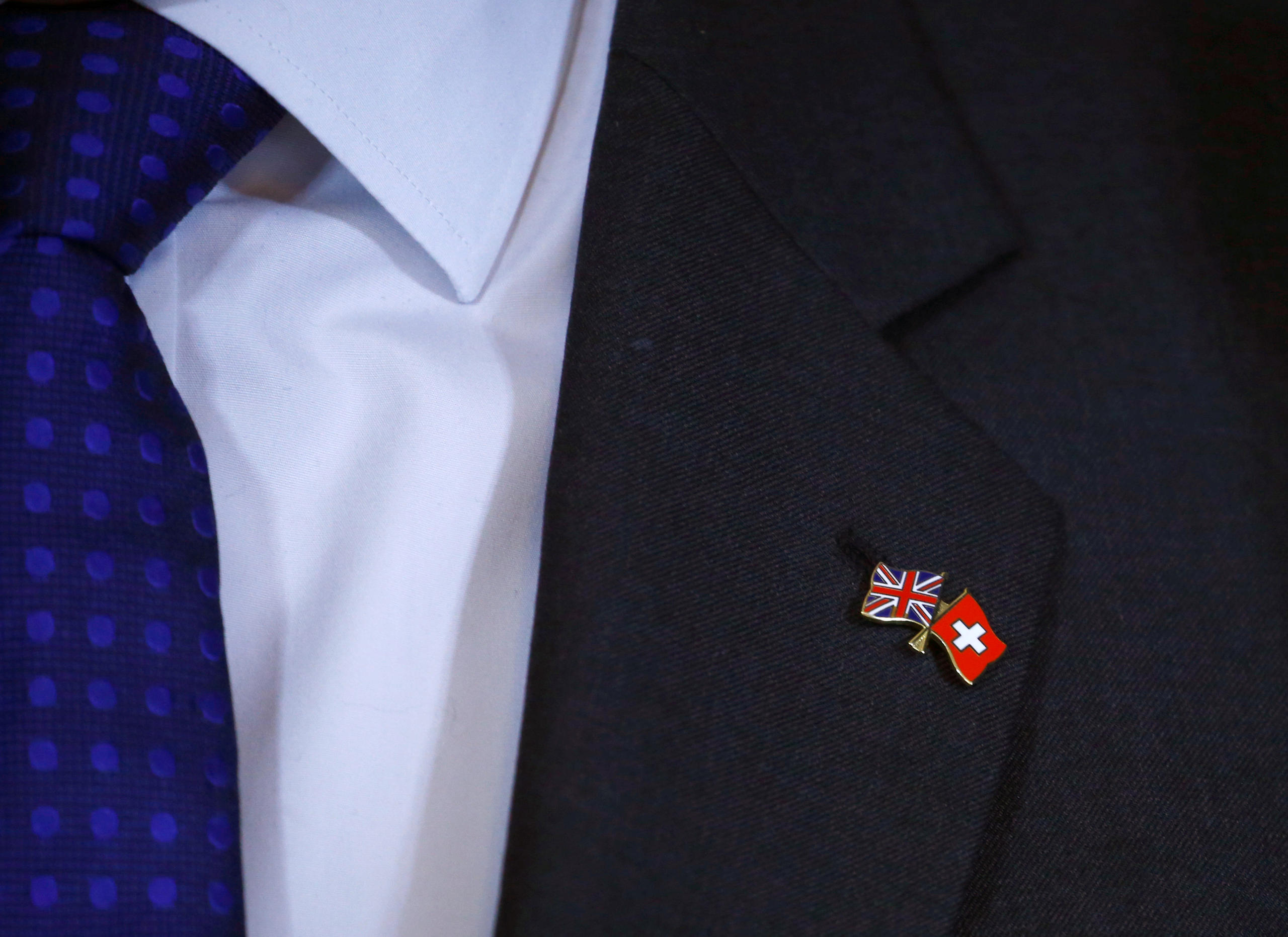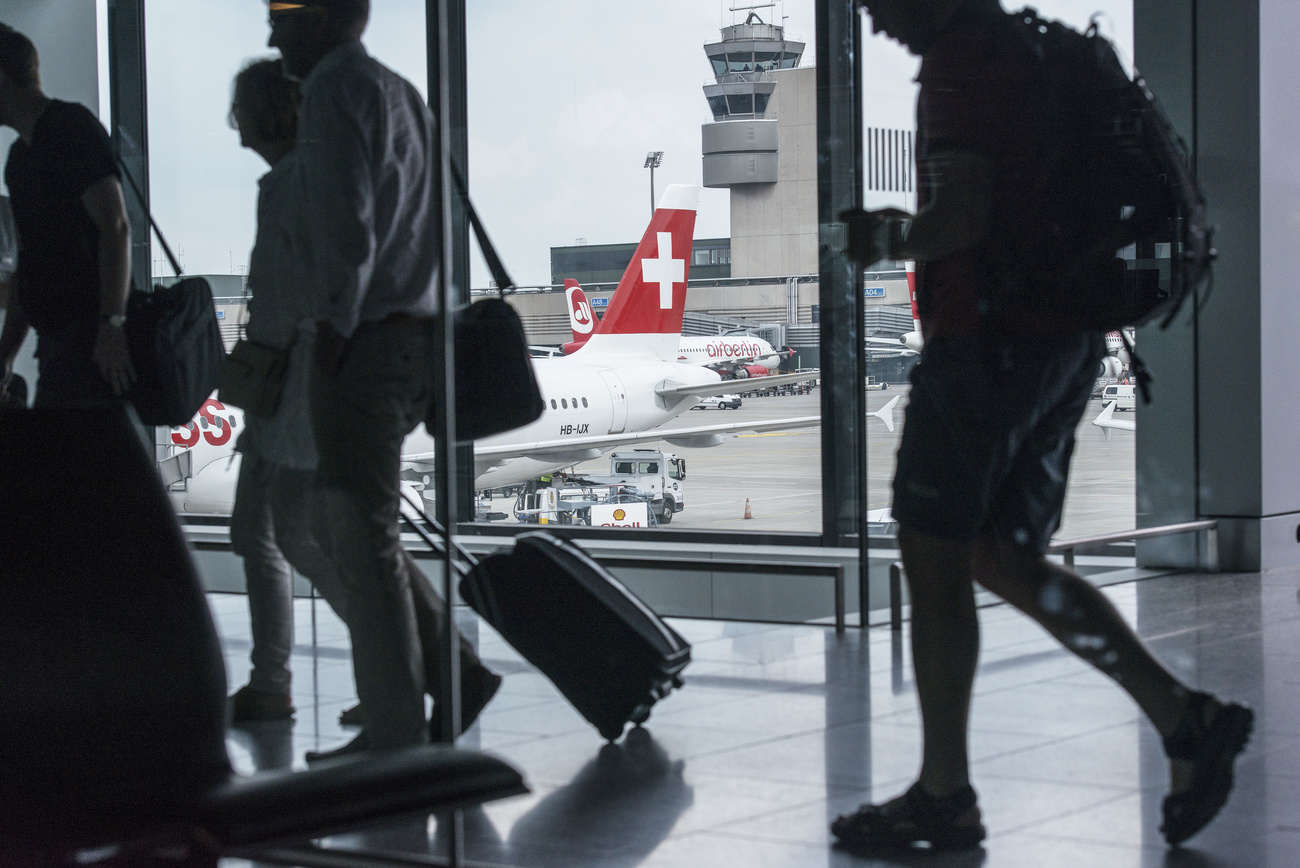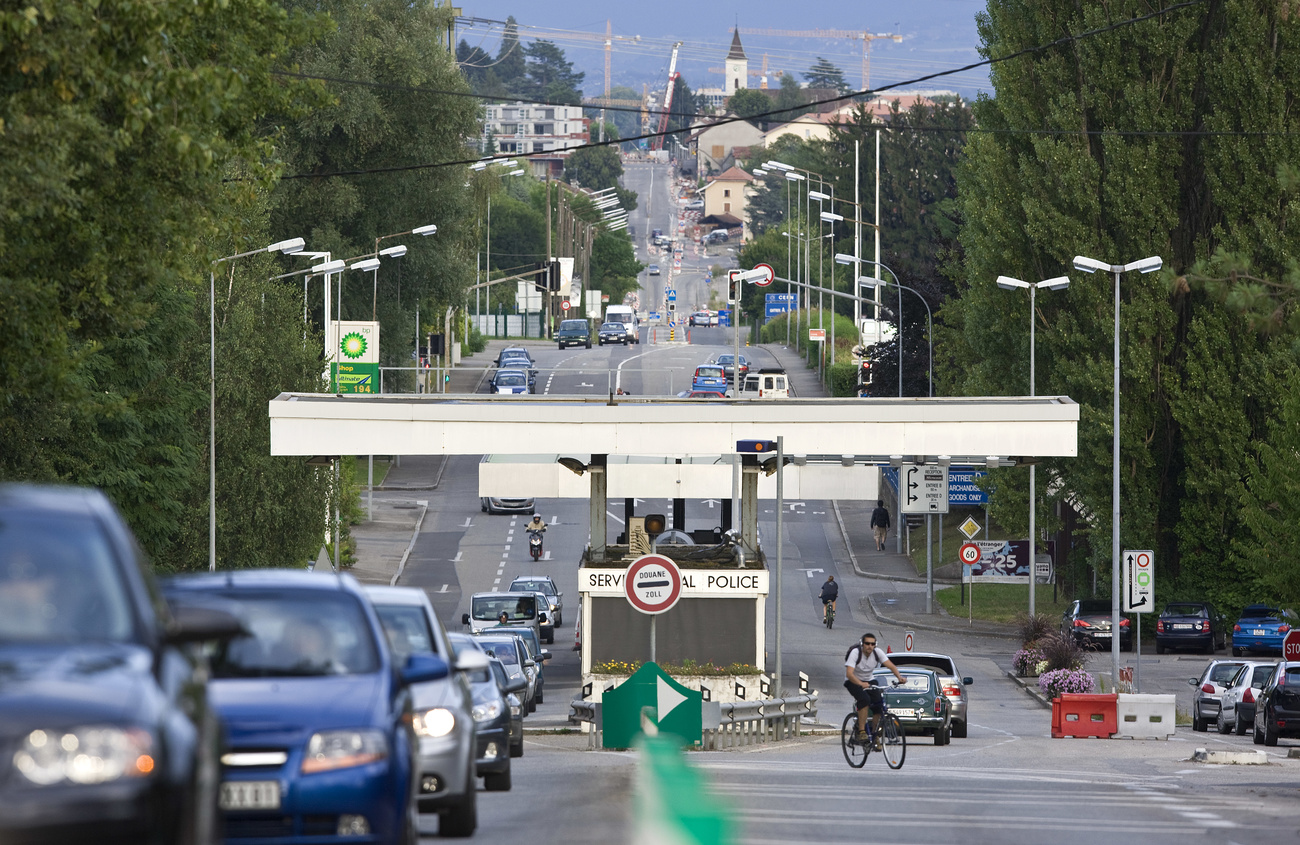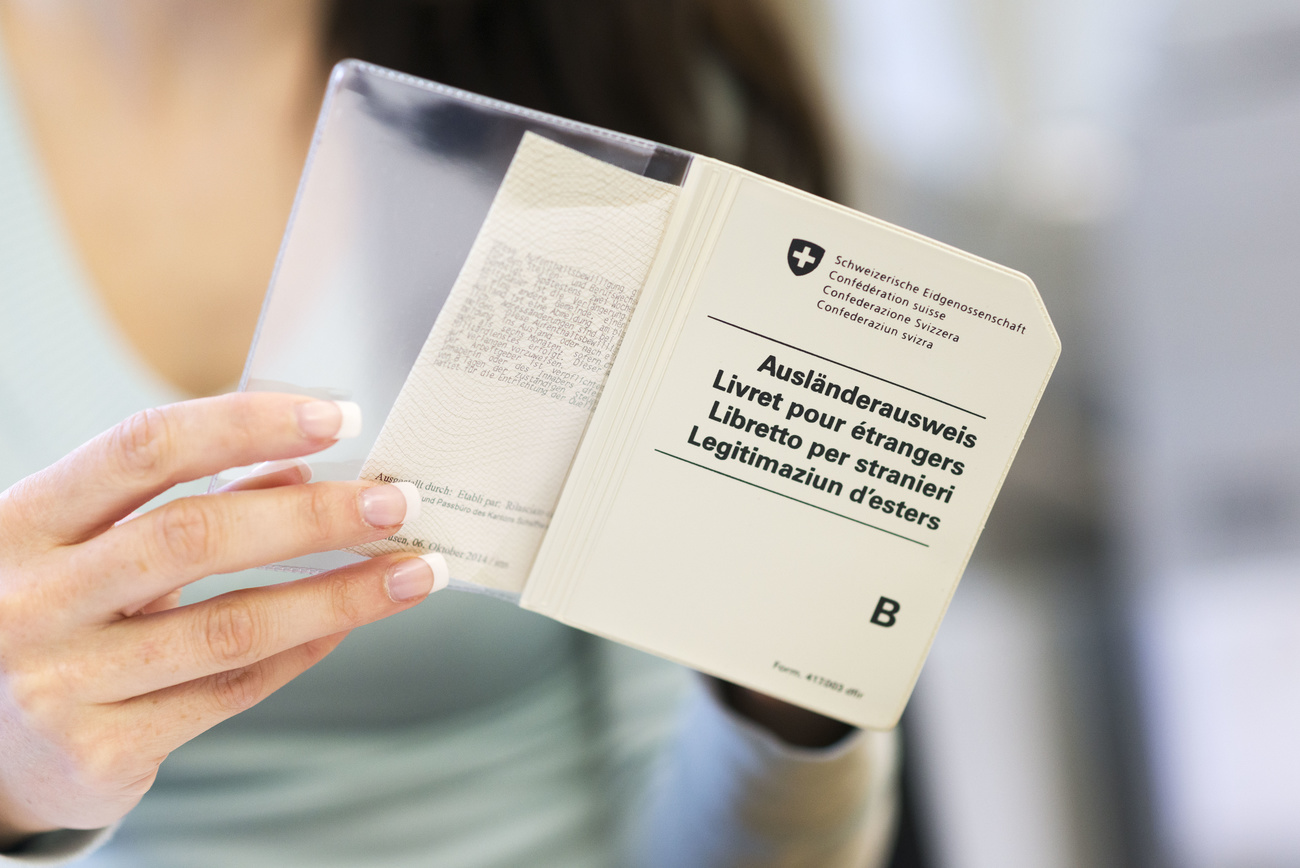
Brexit explainer: visiting, studying and working in Switzerland

The impact of Brexit still reverberates, even in non-EU member Switzerland. From holidays to studying to finding a job in the Alpine nation, SWI swissinfo.ch looked at what has changed for UK nationals either working in Switzerland or wanting to visit since January 1, 2021.
Switzerland is not a member of the European Union but has close ties with the bloc, governed by numerous bilateral agreements. The United Kingdom’s decision to leave the EU orbit therefore also has consequences for Brits wanting to visit, live and work in Switzerland.
To safeguard existing citizens’ rights and to formalise future arrangements for individuals and businesses in Switzerland and the UK, the two governments have concluded a bilateral Citizens’ Rights Agreement as well as a number of deals in the areas of trade, air services, road transport, insurance and services mobility.
The agreement signed on February 25, 2019, protects the rights of Swiss citizens living in the UK – which they acquired under Europe’s Agreement on the Free Movement of Persons (AFMP) – such as residency rights, social security entitlements and the recognition of professional qualifications. Reciprocal conditions apply to UK citizens in Switzerland. The citizens’ rights agreement provisionally entered into force on January 1, 2021.
Swiss citizens and their family members wishing to remain in the UK External linkhave to apply for a new residence status under the UK’s EU Settlement Scheme before June 30, 2021, called settled or pre-settled status.
The UK-Swiss deal ensures the rights of the 43,000 UK nationals living in Switzerland, 14,000 Swiss nationals living in the UK, and around 2,600 UK nationals who travel to work in Switzerland from neighbouring EU states.
Before BrexitExternal link, UK citizens benefited from Europe’s free movement of persons agreement and could travel, live, go on holiday and work anywhere in the EU and Switzerland without any special permits, restrictions or quotas. As of January 1, 2021, this is no longer the case.

Can Britons freely travel to Switzerland?
Switzerland imposed a flight and entry ban on travelers from the UK in late December as the new coronavirus variant started spreading. These bans were lifted from February 8External link. But Switzerland continues to classify the UK as a “high-risk country” and has imposed strict entry restrictionsExternal link.
Derogations regarding entry have been allowed for Swiss citizens, holders of residence permits and special cases. When the current restrictions are lifted and trips resume, Brits will face some changes over the next two years.
UK citizens who were legal residents in Switzerland or cross-border commuters before December 31, 2020, have retained European free movement rights under the UK-Swiss Citizens’ Rights Agreement. But those UK citizens who did not acquire these rights are now regarded as third-country nationals.
Switzerland, like other EU Schengen zone statesExternal link, has agreed to visa-free travel for short stays. This means that UK passport holders can visit Switzerland and other Schengen countries without a visa for up to 90 days over any 180-day period. People who take short holidays or visit relatives won’t notice much difference. The picture will be different for people who travel often or spend long periods moving around Europe.
From 2022 (the exact date is yet to be confirmed), UK nationals will nonetheless have to buy a visa waiver before going on holidays and short stays in the EU and Switzerland. This is expected to cost €7 (CHF7.50) and will be issued under a European system similar to the ESTA permit currently required to visit the US.

Are border controls now different for UK citizens entering Switzerland?
According to the British embassy in Bern, since the start of the year, UK nationals need to use the “All passports” lane at Swiss airports, rather than the one for European Union, European Economic Area, or Swiss citizens, whether or not they hold a residence or cross-border permit. They also cannot use the e-gates anymore.
“I had to bite my quivering lip when choosing the “All passports” lane at immigration last week when coming back here from Blighty,” wrote Andrew Lavender on the SWI swissinfo.ch Facebook page.
The British embassy in Bern says citizens with Swiss residence permits should always carry them together with their passport (that has at least six months’ validity) when crossing Swiss and other Schengen borders.
According to the UK government website,External link British visitors to Europe may also need to prove they have enough money to support themselves for the whole of their stay. They may also need to get their passport stamped and show a return or onward ticket.
Travellers from the UK wanting to enter Switzerland with pets or meat and dairy products will also face stricter rules.
From January 1, 2021 you will not be able to use the existing pet passport scheme as animals and animal products from the UK will be subject to the conditions for imports from third countriesExternal link. Instead you will need to follow a different process, which takes four months.
Animals and animal products from Great Britain (England, Scotland and Wales) are now subject to the same conditions for imports as third countries. Animals and animal products from Northern Ireland are subject to the conditions for imports from the EU.
Entries or returns to Switzerland with pets when travelling from Great Britain are now subject to the rules for third countries. Direct entry by air with dogs, cats and ferrets is now possible only via the airports of Geneva, Zurich and Basel. Direct entry by air with birds is possible only via the airports of Geneva or Zurich. In the case of entry by land via the EU, checks will be carried out upon entry into the EU, for example in France. Travellers may then enter Switzerland with the animals as usual.
Amanda Carr from Zurich wrote on Facebook: “Now even when we want to fly back (from the UK), we have to watch what we bring in our suitcase, i.e. no English sausages or meat allowed, plus a whole host of other restrictions.”
She went on: “Amazon UK charges are now a lot more for delivery from UK to Switzerland.”

As a UK national can I still get a job in Switzerland?
The British embassy in Switzerland insists that if you were a legal resident in Switzerland before January 1, 2021 (around 43,000 people), you will be able to continue living your life in Switzerland “broadly as you do now”.
The Citizens’ Rights Agreement agreed between both countries (see box) protects those already living and working in Switzerland before the end of the Brexit transition period.
Those with a work permit get to keep all their existing rights for residence and employment. Generally they do not need to take actionExternal link. But since January 1, UK citizens no longer have an automatic right to live or work in the EU and Switzerland.
For those British nationals wanting to work in Switzerland in the future, they must now meet the terms of the Foreign Nationals and Integration Act (FNIA). One of the biggest changes is that newcomers are now subject to an annual quota system (2,100 long-term B residence permits and 1,400 short-term L permits for 2021).
New arrivals will also face stiffer competition for jobs. They are now second in line to Swiss and EU/EFTA nationals for any jobs advertised in Switzerland and the range of work is limited to highly qualified “essential manager and specialist” positions. Job seekers can also no longer simply travel to Switzerland to find work and must first obtain a work permit before entering the country.

What is the impact of Brexit for people living and working in Switzerland?
Rosie Robson, a Zurich-based IT recruiter, is witnessing the impact of these changes first-hand: “All of a sudden it’s tricky for us to recruit Brits who are not yet resident here. Very sad.”
Tim Masson, who lives in Basel, said he “felt bad” for UK nationals who might be interested in working for big pharma firms like Roche and Novartis in Switzerland.
“It would have been an extremely easy move up until January this year, but now not so much. I’m just glad I had the chance to enjoy freedom of movement throughout my 20s and end up in beautiful Switzerland,” he wrote on Facebook.
British officials acknowledge the new challenges for British nationals seeking work in Switzerland in the future. But they say the quota total is a realistic figure that reflects previous annual averages.
One unexpected upshot of Brexit is a push for some UK nationals to apply for Swiss nationality, according to Nick Steven.
“As my spouse is an EU27 citizen we will no longer be able to move to the UK so easily with the new “hostile environment”. At least with Swiss citizenship I would be able to move to my spouse’s country if circumstances dictated it. Plus we know my family and I have at least one place where we know we can reside in the same place. Certainly the doors of the UK are now closed to us,” he wrote on Facebook.
The British embassy in Bern dismisses this notion. It argues that the UK’s new global immigration systemExternal link treats people from all parts of the world equally, include those seeking to join family members in the UK. In the year to September 2020, the UK issued 147,448 visas for family reasons.

I’m a UK citizen and I want to come and study at a Swiss university. What has changed?
For any UK students who were already studying in Switzerland before December 31, 2020, it is business as usual.
But from January 1, new students from the UK wishing to study in Switzerland are subject to the Foreign Nationals and Integration Act (FNIA). They face stricter entry conditionsExternal link but they will not need a visa to enter Switzerland to studyExternal link – like other third country students – and tuition fees, which are decided by each individual university, have not changedExternal link (ranging from CHF500-2,000 per semester, plus small additional fees).

More
Headaches abound for Swiss citizens in post-Brexit Britain

In compliance with the JTI standards
More: SWI swissinfo.ch certified by the Journalism Trust Initiative




























Join the conversation!